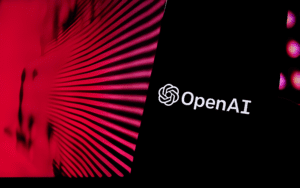If we say that November 2023 is a rollercoaster for OpenAI, it will not be a lie. Some investors in OpenAI, the developers of ChatGPT, are considering legal action against the company’s board, individuals familiar with the situation told Reuters on Monday, after the board fired CEO Sam Altman and provoked a potential employee departure.

According to sources, investors are consulting with legal counsel to weigh their alternatives. It was unclear whether these investors would sue OpenAI. Investors are concerned that “the imminent collapse of the hottest startup in the rapidly rising generative AI field would result in the loss of hundreds of millions of dollars invested in OpenAI, a crown jewel in some of their portfolios.” OpenAI did not respond to a comment request.
According to sources, Microsoft (MSFT.O) controls 49% of the for-profit operating firm. According to Semafor, other investors and staff own 49%, with the nonprofit parent owning 2%. According to an internal memo, Altman was sacked by OpenAI’s board on Friday due to a “breakdown of communications.”

By Monday, the majority of OpenAI’s over 700 staff had vowed to resign unless the board was removed. Venture capital investors typically have board seats or voting power in their portfolio firms. Still, OpenAI is governed by its nonprofit parent company, OpenAI Nonprofit, which was founded to benefit “humanity, not OpenAI investors,” according to OpenAI’s website.
As a result, Minor Myers, a law professor at the University of Connecticut, believes that employees have more clout with the board than the venture investors who helped fund the company. “There is nobody exactly who is in the seat of an injured investor,” that’s what he claimed. That is a feature, not a flaw, of OpenAI’s structure, which began as a nonprofit but added a for-profit subsidiary to generate cash in 2019. Keeping operational control allowed the organization to maintain its “core mission, governance, and oversight,” according to the company’s website.

Nonprofit boards have legal responsibilities to the organizations they govern. However, experts say that those requirements, such as the responsibility to exercise care and avoid self-dealing, allow a lot of room for leadership decisions.
According to Paul Weitzel, a law professor at the University of Nebraska, those obligations can be further constrained under a corporate structure like OpenAI, which uses a limited liability company as its operating arm, potentially further isolating the nonprofit’s board from investors.
Even if investors were to sue, Weitzel believes they would have a “weak case.” Companies have extensive legal leeway to make business decisions, even if they backfire. “You can fire visionary founders,” remarked Weitzel. Apple (AAPL.O) famously sacked Steve Jobs in the 1980s, only to rehire him a decade later.




